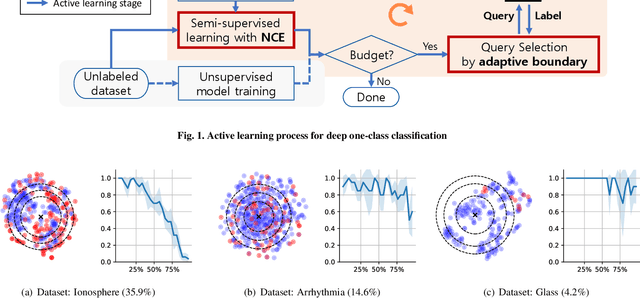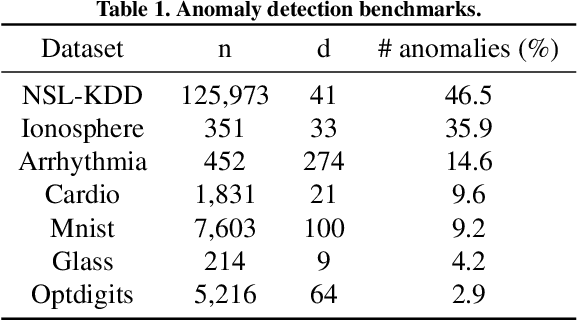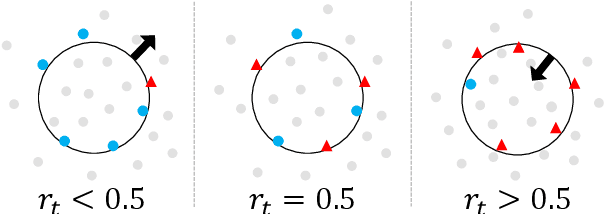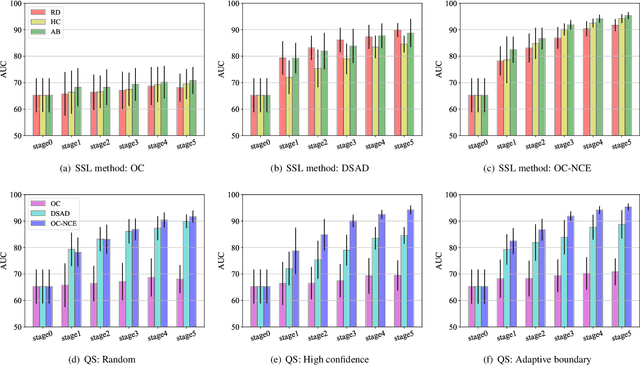Active anomaly detection based on deep one-class classification
Paper and Code
Sep 18, 2023



Active learning has been utilized as an efficient tool in building anomaly detection models by leveraging expert feedback. In an active learning framework, a model queries samples to be labeled by experts and re-trains the model with the labeled data samples. It unburdens in obtaining annotated datasets while improving anomaly detection performance. However, most of the existing studies focus on helping experts identify as many abnormal data samples as possible, which is a sub-optimal approach for one-class classification-based deep anomaly detection. In this paper, we tackle two essential problems of active learning for Deep SVDD: query strategy and semi-supervised learning method. First, rather than solely identifying anomalies, our query strategy selects uncertain samples according to an adaptive boundary. Second, we apply noise contrastive estimation in training a one-class classification model to incorporate both labeled normal and abnormal data effectively. We analyze that the proposed query strategy and semi-supervised loss individually improve an active learning process of anomaly detection and further improve when combined together on seven anomaly detection datasets.
 Add to Chrome
Add to Chrome Add to Firefox
Add to Firefox Add to Edge
Add to Edge